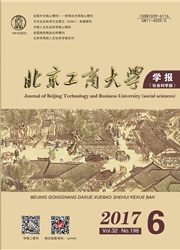

 中文摘要:
中文摘要:
我国的城镇劳动力市场分割形式多样。本文利用中国城镇家庭调查数据,基于回归、分解和倾向值匹配等方法展开实证分析,考察在不同雇佣合约下工人收入的影响因素是否存在显著差异,并进一步区分不同雇佣类型工人的收入差距是市场有效性的反应还是市场分割带来的租金。回归结果表明,雇佣合约期限与收入之间存在正向关系,不同雇佣合约关系下的工人收入决定机制存在差异。进一步的分解发现,在均值和不同分位数上分割效应对收入差距的解释程度始终高于禀赋效应,即不同雇佣合约类型之间存在劳动力市场分割现象。本文还采用分层倾向值匹配去除可观测的样本选择偏差,结果进一步验证了不同雇佣合约之间存在劳动力市场分割导致的收入差距这一结论。
 英文摘要:
英文摘要:
The urban labor market in China is characterized by segmentation with different dimensions. This paper uses the survey data of China's urban households and the regression,decomposition and propensity score matching methods to make an empirical study to examine whether there exists significant difference in the factors influencing workers' income under different employment contracts,and further distinguish whether the income gap under different employment contracts reflects the market effectiveness or is the rent out of market segmentation. The research result shows that contract period and income are positively correlated and there is difference in workers' income determining mechanism under different employment contracts. Further decomposition shows that for mean and quantile,segmentation effect consistently has a higher degree of explanation to income gap than endowment effect,i. e. labor market segmentation exists in different employment contracts. With the propensity score matching method to eliminate observable sample selection bias,the result further verifies the conclusion that labor market segmentation exists in different employment contracts.
 同期刊论文项目
同期刊论文项目
 同项目期刊论文
同项目期刊论文
 期刊信息
期刊信息
